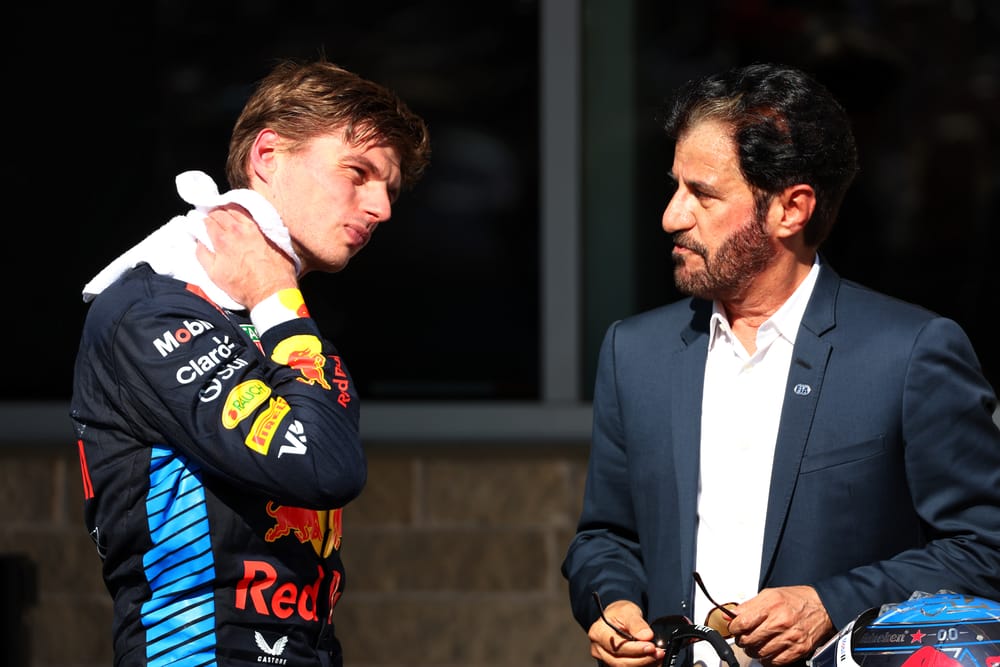Up Next

The FIA's publication of new guidelines that open the door to driver bans, loss of points and hefty fines for "misconduct" caught many in Formula 1 by surprise on Wednesday night.
The issue of driver conduct, which had emerged as a hot topic at the end of last year, seemed to have faded away over the winter, but the introduction of such draconian sanctions has put it back in the spotlight.
However, the latest development is something much bigger than simply being about how drivers act in public.
Instead, what is at play are two ongoing themes: the first is the relationship between motor racing's governing body and the drivers, and the second involves the way FIA president Mohammed Ben Sulayem is ruling things.
The trigger for change
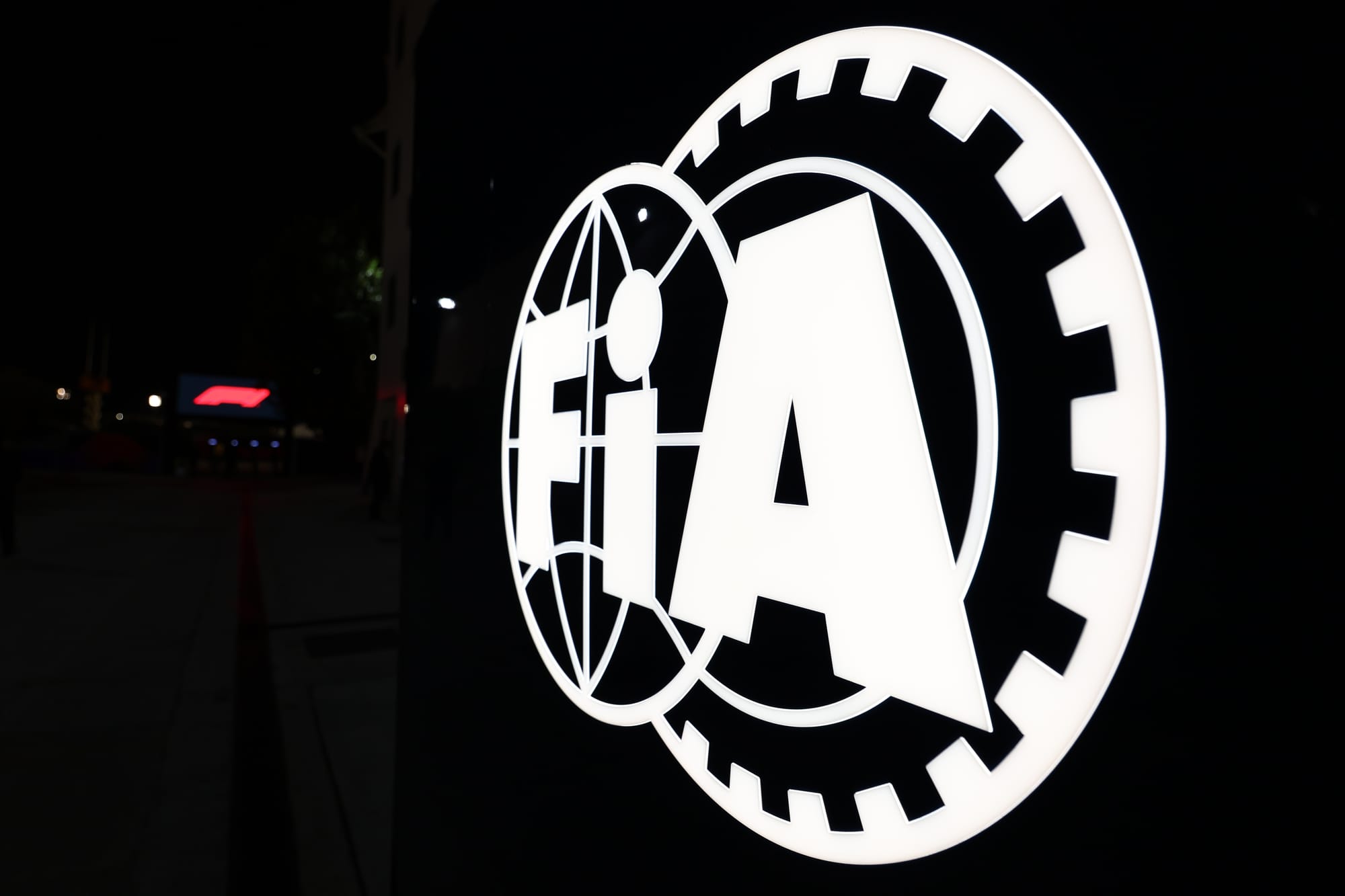
The tough approach taken with the guidelines fits in with the hardline stance that Ben Sulayem has taken over many matters - and in particular driver behaviour.
This came to a head at the Singapore Grand Prix when Ben Sulayem said he wanted to see drivers swear less - and world champion Max Verstappen was sanctioned for cursing in a press conference.
While Ben Sulayem's crusade on the matter has earned him some criticism, he has proved to be defiant.
He has repeatedly made clear that his only focus is on doing what he feels is best for FIA members. He claims he is duty-bound to ensure rules are respected and enforced.
"Did I write these rules about swearing?" he explained in an interview at the Qatar GP about the issue becoming such a hot topic.
"Was I the one who implemented and policed it? I ask you because it's the stewards. It's not me. It's the stewards. So you go and ask them, why is that?"
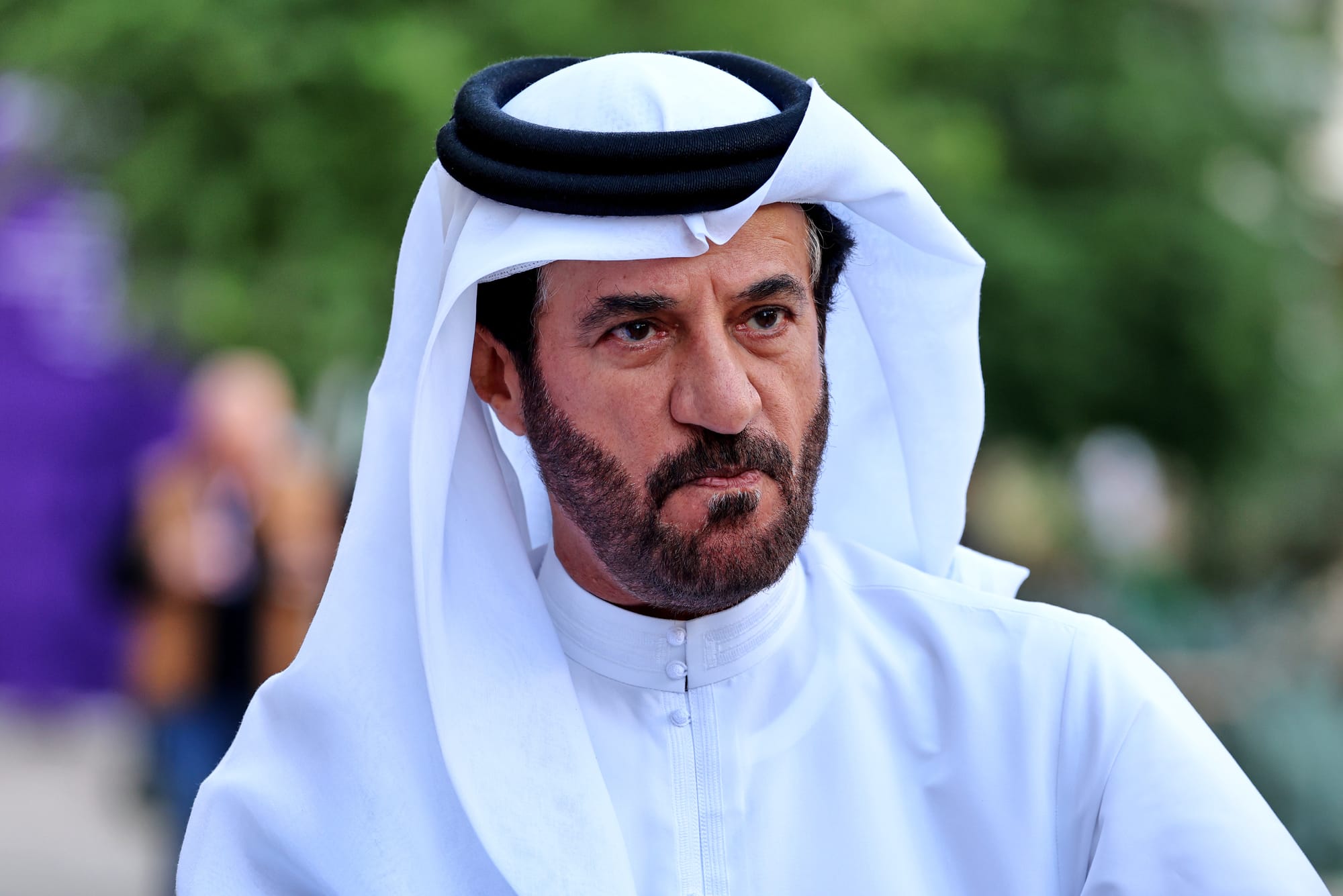
From the FIA's perspective, the introduction of the guidelines is simply the next step in Ben Sulayem's push to ensure rules are followed.
As the governing body has explained, going public with the guidelines is motivated by a desire to enhance transparency and consistency in the decision-making process of stewards.
In its eyes, laying out advice on the type of sanctions that should be given should help avoid scenarios like last year's - where many did not understand why Verstappen was given a day's community service for what he did in Singapore, while Charles Leclerc got away with a fine for using similar words in Mexico.
An FIA statement said: "The aim of this new appendix is to provide clear guidance to stewards regarding the penalties for violations of specific ISC articles.
"By establishing a more structured framework, the FIA seeks to ensure that penalties are applied uniformly and transparently, benefiting both stewards and drivers/competitors."
The FIA also pointed out that the new Appendix B is also just guidelines, and that these specific punishments do not have to be chosen by the stewards - who remain free to hand out the sanctions they deem appropriate.
As Appendix B states: "Stewards retain the discretion to take into account any mitigating and/or aggravating circumstances as well as the nature and location of the Event, to tailor the penalty to the specific situation."
Read more: F1 drivers could face 'misconduct' bans under new FIA guidelines
In terms of the scale of the sanctions, Ben Sulayem has long argued that F1 needs to fall in line with other sports, like football and American football, which punish players for misconduct.
The NFL indeed publishes fines for such rule breaches. Examples of offences include physical contact with an official - which currently stands at $39,501 for the first offence and $79,004 for the second offence.
Verbal or non-physical offence against an official, which is perhaps closest to the FIA's misconduct element, earns a fine of $31,599 for the first offence and $63,204 for the second offence.
But while these are not totally out of kilter with the scale of penalties that have been laid down in the FIA guidelines, there is a critical difference here.
The NFL fine schedule is an agreement between the governing body (the NFL) and the NFL Players' Association, so there is a degree of consultation with participants on the matter.
This is something that has not happened in the FIA matter because it was done without any recent detailed discussion with F1's drivers for a final sign off. And this is the first area of unease about what has happened.
The relationship with drivers
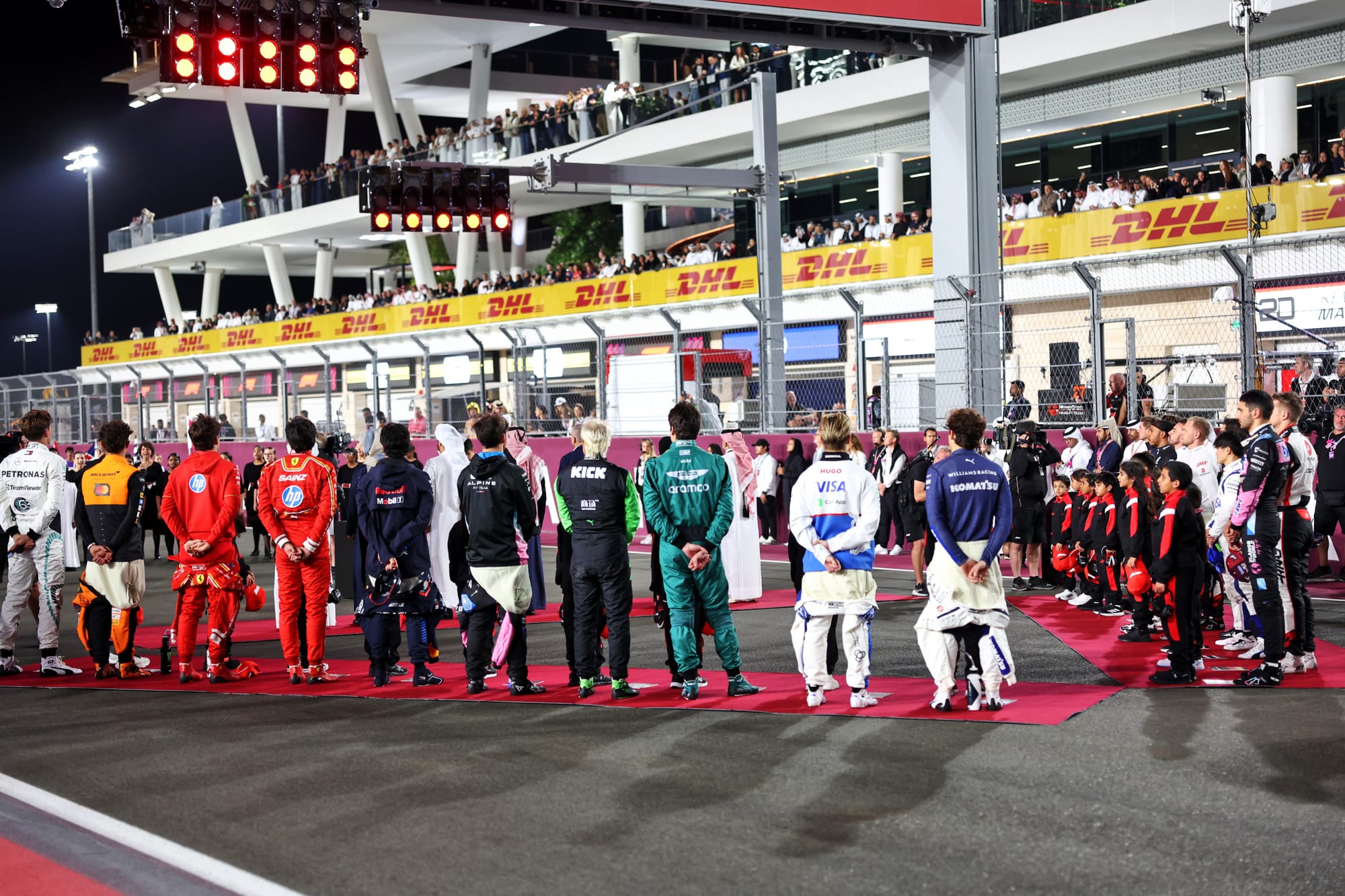
The new stewards' guidelines come against the backdrop of lingering tensions between F1 drivers and Ben Sulayem at the end of last year.
Amid some concerns about the way drivers felt they were being treated in relation to issues like swearing and the jewellery ban, the Grand Prix Drivers' Association (GPDA) published an open letter to Ben Sulayem.
It called on Ben Sulayem to treat them like 'adults', and said it wanted to work with all of F1's stakeholders to help make the championship better.
In a section of their letter, they also emphasised that they did not think that financial penalties were something that should be used in F1.
"The GPDA has, on countless occasions, expressed its view that driver monetary fines are not appropriate for our sport," the GPDA wrote.
"For the past three years, we have called upon the FIA president to share the details and strategy regarding how the FIA's financial fines are allocated and where the funds are spent."
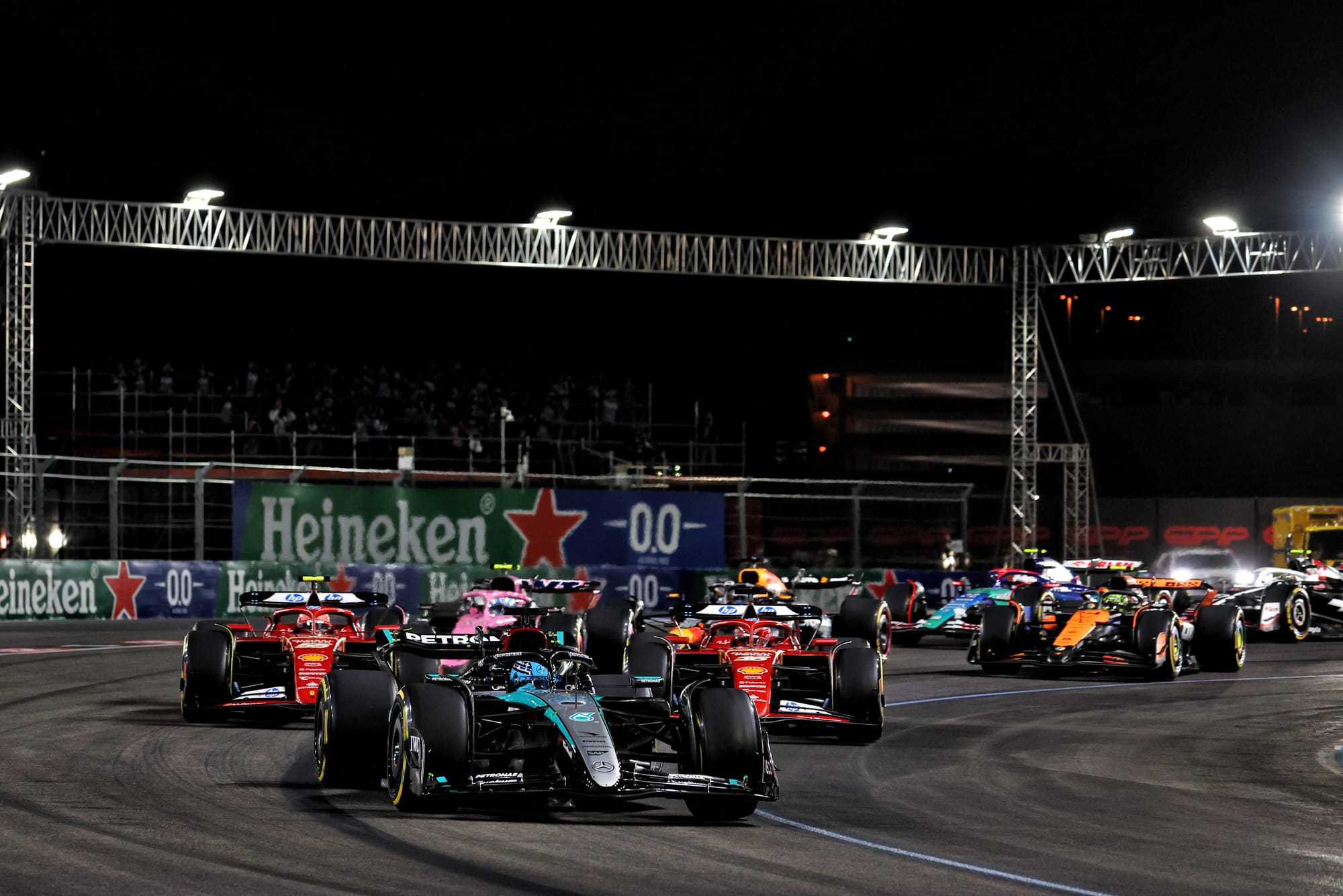
But despite the drivers' openness for collaboration, the GPDA stance drew little sympathy from Ben Sulayem.
Having chosen not to respond to the GPDA communication, Ben Sulayem later famously said in response to their calls: "None of their business. Sorry. With all respect, I am [myself] a driver and I respect the drivers.
"But let them go and concentrate on what they do best, [which] is race."
The GPDA has no interest in a public war with Ben Sulayem - as its focus has always been on improving things rather than scoring political points in public - so its approach was to let sleeping dogs lie.
But hopes that things would move on in a positive way have been shattered by the tough new guidelines - which are understood to have come out of the blue for drivers and were put in place without any recent detailed consultation with them.
However, the FIA argues that during a meeting in Qatar last year with drivers one of the mandates it was given was to give clearer guidelines and impose punishments that acted as proper deterrents.
Furthermore, there is no requirement in the FIA statutes for it to discuss such changes to the regulations or code with drivers.
Observers have nevertheless suggested it would be beneficial for the FIA and drivers to be working together more, not in isolation.
There are also worries in some quarters that the scope of the guidelines - with 'misconduct' being quite a subjective thing - is too far reaching.
The FIA's International Sporting Code labels misconduct as: "The general use of language (written or verbal), gesture and/or sign that is offensive, insulting, coarse, rude or abusive and might reasonably be expected or be perceived to be coarse or rude or to cause offence, humiliation or to be inappropriate; assaulting (elbowing, kicking, punching, hitting, etc); incitement to do any of the above."
Considering the prospect of race bans is on the table, it is relevant that what one person deems 'rude' may not be universally held.
The Appendix B document that was published also lays out a two-year period where multiple offences lead to a ramping up of the sanctions.
So in theory, if an F1 driver swears three times in press conferences over two seasons, that could mean a one-month ban and a €120,000 fine.
There are few offences on the sporting side that are punished this harshly. Even the FIA approach to driver penalty points is that the totting-up process relates to a 12-month period, and even then it is only a one race ban for repeat offenders.
The leadership questions
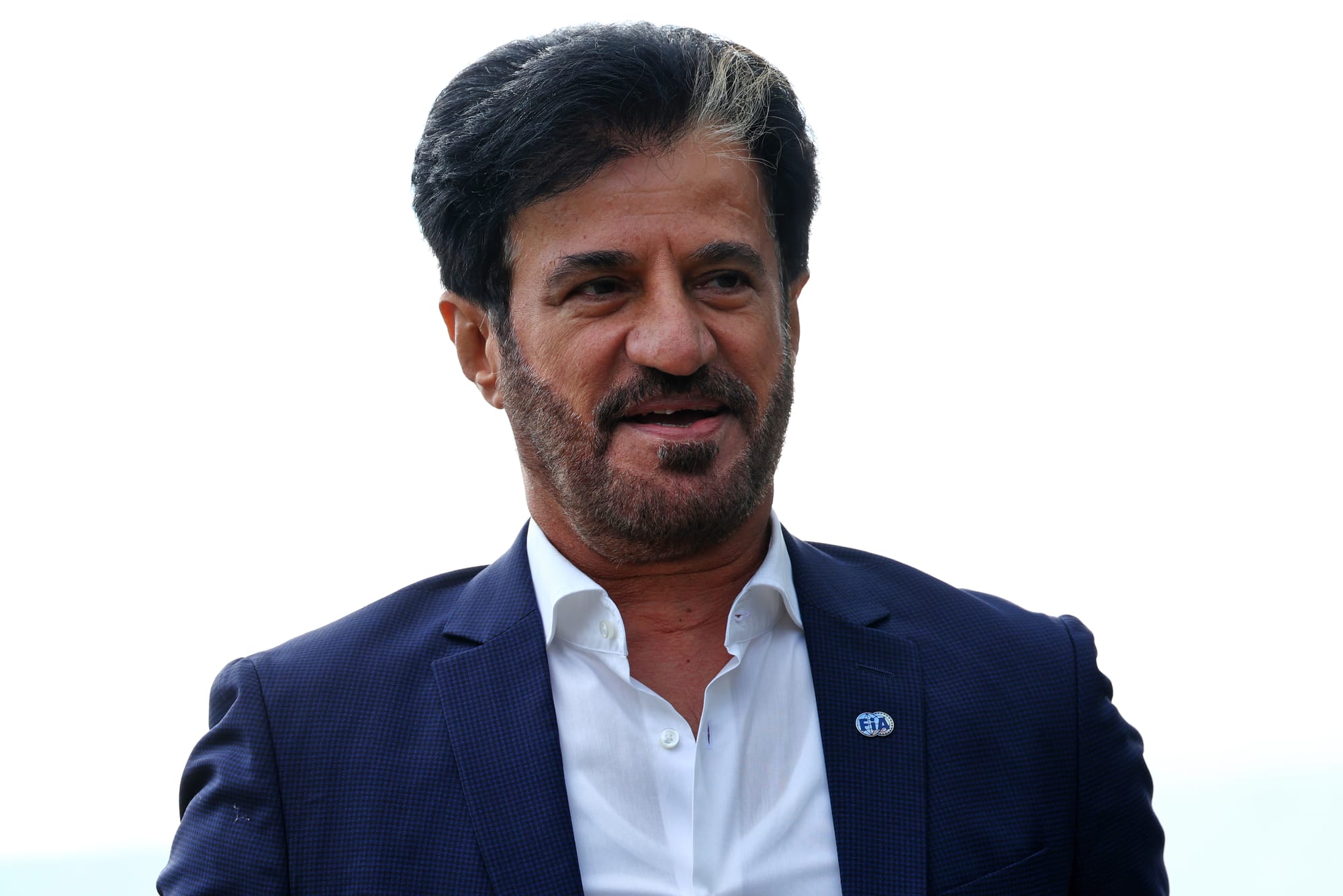
As well as debate over the harshness of the penalty recommendations, what has also emerged as a bone of contention is the way that some feel the vote was effectively pushed through the World Motor Sport Council at Ben Sulayem's behest.
Where once the WMSC was a forum for debate and discussion during its regular gatherings, sources say that its processes have notably shifted under the latest regime.
A move towards more virtual meetings, and more recently the increasing use of quick e-votes without debate, has left some unhappy due to a perception that, when it comes to changes to FIA regulations and statutes, proper due diligence is no longer being carried out.
While e-votes do fulfil the letter of the legislative process, in that the majority need to back changes for them to go through, sources suggest that there is a degree of unease about things not operating in the way a proper democracy should with open discussion.
In the case of the new misconduct guidelines, the rush to push them through via an e-vote, without prior consultation with drivers nor championship promoters, nor waiting for the next scheduled meeting, meant it failed to get unanimous support from the WMSC.
One senior source with good knowledge of the situation said: "It would have been much better to have a conversation with the GPDA and treat them like adults, than do it without proper discussions and deliberation. Drivers need a level of respect given to them."
Most significantly, The Race understands that one of those who voted against the proposal was F1 CEO Stefano Domenicali - which is a rare move as FOM does not usually abstain from votes.
However, FIA sources insist that there was nothing underhand in the way that these guidelines were put to an e-vote, as it was simply a case of the matter popping up as one of many issues that had fallen between the gaps of the most recent WMSC meeting in Rwanda in December and the next one that is due to take place in Paris on February 21.
The whisper of discomfort about the way that some feel the governing body's democratic processes are being bypassed is especially interesting because it comes at the start of an FIA president election year.
And whereas several months ago it had seemed almost certain that Ben Sulayem would be unopposed to win a second term, the latest play has offered the first hint that perhaps that is no longer the case.


